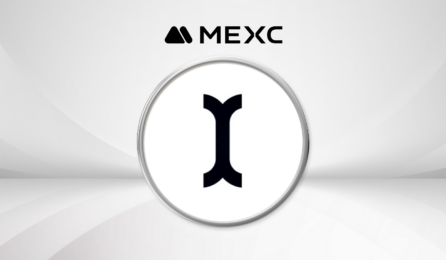
Apple drops Bybit, KuCoin, and Bitget in Japan under regulatory heat
- The removals follow warnings from Japan’s Financial Services Agency (FSA).
- Some unlicensed exchanges, like Crypto.com and CoinEx, remain available.
- Bybit confirmed the removal but assured users that services remain operational.
Yahoo Japan reports Apple has delisted several cryptocurrency exchange apps from its App Store in Japan, following increased scrutiny from regulators.
Bybit, KuCoin, Bitget, MEXC, and LBank are no longer available for download, marking a significant development in Japan’s ongoing efforts to enforce compliance in the digital asset sector.
The move comes after Japan’s Financial Services Agency (FSA) warned these exchanges about operating without the necessary registration.
Apple’s selective removals raise questions about its approach to compliance, as some unregistered exchanges, such as Crypto.com and CoinEx, remain available.
While affected exchanges have assured users that their services remain operational, the incident highlights the growing regulatory pressure on both crypto firms and tech companies like Apple, which play a gatekeeping role in digital finance.
Apple’s role in Japan’s crypto crackdown under scrutiny
Copy link to sectionJapan has some of the world’s strictest cryptocurrency regulations, requiring all exchanges to register with the FSA before offering services to residents.
The removal of these apps aligns with Japan’s tightening oversight, but Apple’s selective enforcement has sparked debate.
Bybit, which previously faced regulatory warnings in Japan, confirmed the removal in a blog post, stating that existing users can continue using the app without disruption.
Meanwhile, KuCoin, Bitget, and the other delisted platforms have not issued statements at the time of writing.
Apple’s decision coincides with the FSA’s broader efforts to enhance regulatory compliance.
In December, the regulator announced plans to align its policies with global standards and increase scrutiny on unregistered crypto exchanges.
A January roundtable on internal audits for financial institutions further signalled Japan’s intent to strengthen oversight.
However, details from that meeting remain undisclosed.
Unclear criteria for app removals
Copy link to sectionThe removals have raised concerns about inconsistencies in Apple’s compliance approach.
Despite FSA warnings, some unlicensed exchanges remain available for download in Japan’s App Store.
Searches for “crypto assets” or “virtual currency” still display apps from Crypto.com and CoinEx, leading to speculation about Apple’s selection criteria.
Apple has previously removed crypto-related apps from its store worldwide, often citing regulatory non-compliance.
In Japan, the lack of an official statement from Apple or the FSA leaves uncertainty about whether the removals were voluntary or prompted by regulatory intervention.
The situation also reflects Japan’s increasing pressure on foreign crypto firms.
The FSA has long advocated for stricter enforcement, particularly against offshore exchanges serving Japanese users without local registration.
Apple’s removals may signal a step towards compliance alignment, but the uneven enforcement raises questions about how tech giants determine regulatory adherence.
Impact on global crypto markets
Copy link to sectionJapan’s regulatory approach to crypto has been closely watched by other governments, particularly in regions seeking stricter compliance measures.
If Apple’s actions were influenced by FSA directives, this could set a precedent for other jurisdictions with strong crypto regulations, such as the EU and South Korea.
The incident also highlights the broader role of tech platforms in enforcing financial regulations.
As a gatekeeper for mobile apps, Apple holds significant control over which financial services are accessible to users.
Its response to regulatory pressure—whether proactive or reactive—could shape how crypto exchanges operate in tightly regulated markets.
For now, the removals serve as a warning for crypto firms operating in Japan without the necessary licences.
As the FSA continues to push for stricter oversight, further restrictions could be imposed on exchanges that fail to meet compliance standards.
Apple’s next moves will likely be scrutinised to determine whether this is an isolated incident or the beginning of a wider crackdown.







